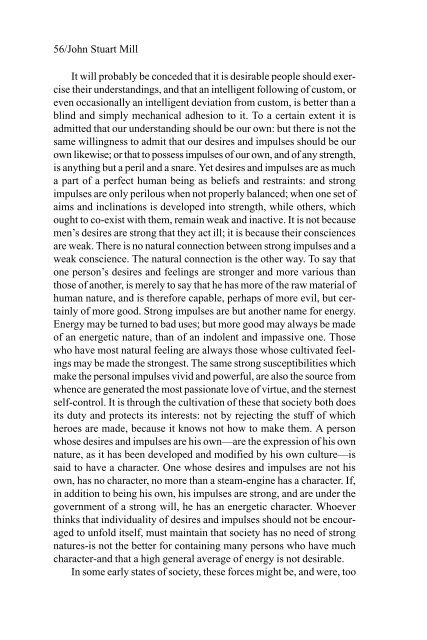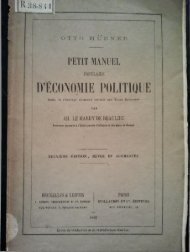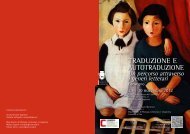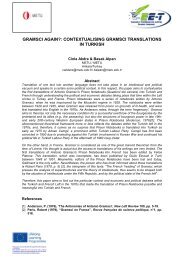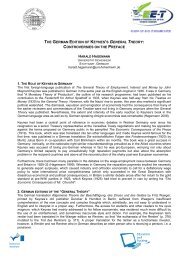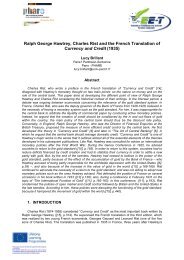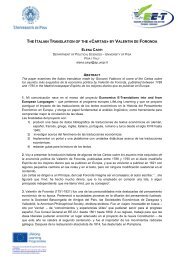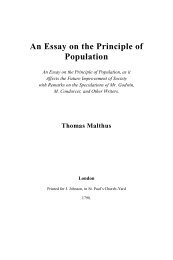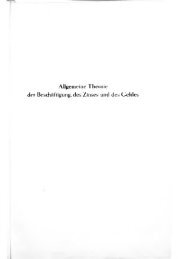On Liberty John Stuart Mill Batoche Books
On Liberty John Stuart Mill Batoche Books
On Liberty John Stuart Mill Batoche Books
You also want an ePaper? Increase the reach of your titles
YUMPU automatically turns print PDFs into web optimized ePapers that Google loves.
56/<strong>John</strong> <strong>Stuart</strong> <strong>Mill</strong>It will probably be conceded that it is desirable people should exercisetheir understandings, and that an intelligent following of custom, oreven occasionally an intelligent deviation from custom, is better than ablind and simply mechanical adhesion to it. To a certain extent it isadmitted that our understanding should be our own: but there is not thesame willingness to admit that our desires and impulses should be ourown likewise; or that to possess impulses of our own, and of any strength,is anything but a peril and a snare. Yet desires and impulses are as mucha part of a perfect human being as beliefs and restraints: and strongimpulses are only perilous when not properly balanced; when one set ofaims and inclinations is developed into strength, while others, whichought to co-exist with them, remain weak and inactive. It is not becausemen’s desires are strong that they act ill; it is because their consciencesare weak. There is no natural connection between strong impulses and aweak conscience. The natural connection is the other way. To say thatone person’s desires and feelings are stronger and more various thanthose of another, is merely to say that he has more of the raw material ofhuman nature, and is therefore capable, perhaps of more evil, but certainlyof more good. Strong impulses are but another name for energy.Energy may be turned to bad uses; but more good may always be madeof an energetic nature, than of an indolent and impassive one. Thosewho have most natural feeling are always those whose cultivated feelingsmay be made the strongest. The same strong susceptibilities whichmake the personal impulses vivid and powerful, are also the source fromwhence are generated the most passionate love of virtue, and the sternestself-control. It is through the cultivation of these that society both doesits duty and protects its interests: not by rejecting the stuff of whichheroes are made, because it knows not how to make them. A personwhose desires and impulses are his own—are the expression of his ownnature, as it has been developed and modified by his own culture—issaid to have a character. <strong>On</strong>e whose desires and impulses are not hisown, has no character, no more than a steam-engine has a character. If,in addition to being his own, his impulses are strong, and are under thegovernment of a strong will, he has an energetic character. Whoeverthinks that individuality of desires and impulses should not be encouragedto unfold itself, must maintain that society has no need of strongnatures-is not the better for containing many persons who have muchcharacter-and that a high general average of energy is not desirable.In some early states of society, these forces might be, and were, too


